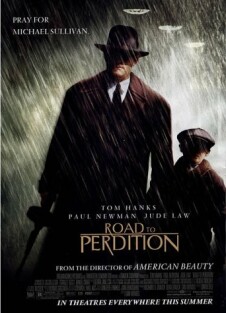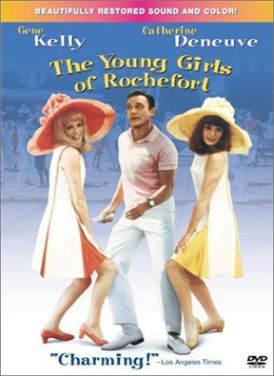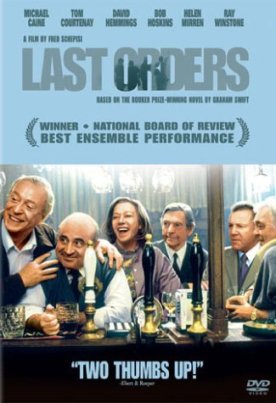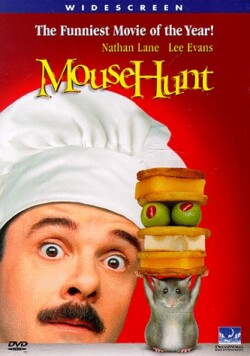Road to Perdition
At the end of The Road to Perdition, directed by Sam (American Beauty) Mendes and based on a “graphic novel” (that’s a comic book to most of us) by Max Allan Collins and Richard Piers Rayner, we see the same image we see at the beginning, before the opening credits: a boy in 1930s dress looking out to sea from a beach of some kind, his back turned to us. The voiceover asks the same question about one Michael Sullivan, whether he was a decent man or had no good in him at all. At the beginning, the question is left hanging; by the end, when we know that the boy is Michael Sullivan’s son, also called Michael Sullivan, it is answered: “When people asked if Michael Sullivan was a decent man or had no good in him at all I give them the same answer: he was my father.”
If you were to conclude from this that the movie suffers from a combination of portentous moralism and corniness, you would not be wrong. After all, the film takes its title from the supposed name of the town (Perdition-on-the-Lake it is, though not, oddly, a lake of fire) to which our two plucky Michael Sullivans try to flee in search of refuge from the Chicago mob in the 1930s. Yet the concluding remark must also be meant subtly to undermine the point of the rest of the movie. This is that the categories of “decent” and “no good” do matter, and that ignoring them out of loyalty to family, as Michael Sullivan Jr. pretends to do in his voiceover, is despicable.
For it is precisely this kind of blind loyalty that is the salient quality of John Rooney (Paul Newman), an Irish mob boss in the 1930s, who continues to protect his worthless son, Connor (Daniel Craig), even after the latter kills the wife and son of the same Michael Sullivan (Tom Hanks), who is his father’s most loyal and trusted lieutenant. Sullivan escapes with his surviving son, the boy in the voiceover, to take vengeance not only on the Rooney mob but even its parent organization, which in 1931 is being run by Frank Nitti (Stanley Tucci) on behalf of Al Capone.
Don’t be a fool, Michael! You can’t take on the whole Chicago crime syndicate! And with a boy to look after! But of course he can and does, and so becomes the latest incarnation of that old American myth of The Man Alone, a solitary figure of integrity in a corrupt world, a man unattached to any larger organization but with sense of honor peculiar to himself. In fact, its peculiarity is what makes it honorable. By the same token, old man Rooney advertises himself as the bad guy by telling Mike Jr. that “a man of honor always pays his debts, and keeps his word.” Oh, the scoundrel! Experienced movie-goers will realize at once that the word “honor” rarely makes an appearance in the movies when it is not mere hypocrisy, a cover for vice and wickedness.
Similarly, by setting up the false dichotomy of Michael Jr’s voiceover, the movie is trying to be paradoxical. How can we believe that a killer and a bank robber is a decent man? How indeed! Do they think we have never seen any movies before! Killers and bank-robbers in the movies are almost always decent men, or are at least more likely to be decent than, say businessmen or soldiers. There is no paradox at all. But the pretense that there is is owing to the myths of progressivism, which include, along with The Man Alone, the idea of the gentle soul who only takes up a gun to put an end to “the cycle of violence” — like Woodrow Wilson being “too proud to fight” and then only doing so in obedience to the lunatic notion that he is engaging in “the war to end wars.”
Though Sam Mendes is a Briton by birth, he has both these great American myths at heart in The Road to Perdition. This becomes apparent when, after Sullivan Sr. has wiped out all his old pals in the Rooney mob, conveniently assembled for the purpose, with a Tommy-gun, Nitti’s hired killer, played by Jude Law, gets the drop on him in Perdition-on-Sea. It so happens that Sullivan Jr. has a chance to shoot his dear old dad’s would-be murderer and he doesn’t take it, even if it might mean saving his own life as well as dad’s. He is proud of this demurral, Dad is proud of it and we are meant to be proud of it. “My father’s only fear,” says the ever-annoying voiceover, “was that his son would follow the same road. And” — wait for it — “that was the last time I ever held a gun.”
Even Mendes cannot have come all this way just to preach a little sermon on behalf of gun control. Can he? Yet it is no more odd an idea than having Sullivan Sr. slaughter all his old friends in an appalling bloodbath as a reasonable way of turning his son into a pacifist. But it is clear that we are meant to see the non-violent son as the hero not just for being non-violent but also for venerating the memory of his violent father — for putting an end to violence. Because The Man Alone has no comrades, his memory belongs to those who celebrate his deeds for being the last of their kind. In this he is like the Lone Ranger, whose adventures are Michael Jr’s favorite reading matter. This movie should be put in the same category.
Discover more from James Bowman
Subscribe to get the latest posts to your email.








